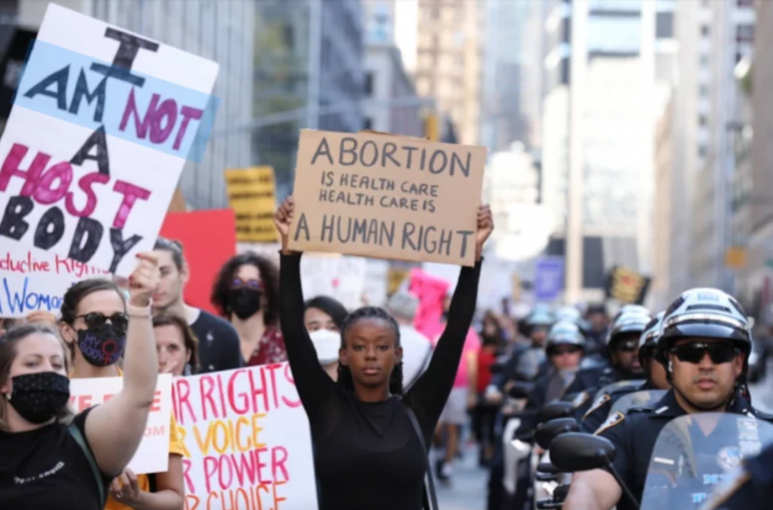What We're Reading This Week

Marc Reyes, University of Connecticut
Kenneth I. Juster, Mohan Kumar, Wendy Cutler, and Naushad Forbes, It’s Time for America and India to Talk Trade, Foreign Affairs
An interesting consequence of the Russian-Ukraine war has been a closer examination of the United States and India’s relationship. While the U.S. has marshalled an alliance against Putin’s Russia, India has refused to criticize Russia’s war, its brutal tactics, and not voted against the country at the United Nations (it has instead abstained on votes condemning Russia). The four authors, including former U.S. Ambassador to India Juster, argued that while the U.S. and India have grown closer on several issues, most notably defense and stopping Chinese expansionism in the Indo-Pacific region, trade remains an issue of friction. It’s true that trade between the two countries has jumped over the past twenty years, but well below expectations between the largest and sixth-largest economies in the world. The essay encourages enhanced bilateral trade between the U.S. and India and for the two countries to build on their growing security relationship to develop an economic framework for a free and open Indo-Pacific.
Lucy Song, The Elite Capture of Asian American Politics, Boston Review
Song, a PhD candidate in Harvard’s Department of Government, reviewed Jay Caspian Kang’s timely book, The Loneliest Americans. At a time of harassment and violence directed towards Asians in the United States and Asian-Americans, it is important to remember that the around 22 million people classified as Asian-American are not a political monolith with divisions marked by class, family history, and ethnic background. According to Song, Kang’s candid, and largely autobiographical work captures the alienation he experienced through his education and work as a journalist. Kang’s book examines “the social construction of Asian-American identity” and exposes “a high degree of class stratification.” What seems to be the dividing line for many Asian-Americans is whether they arrived in the U.S. before or after the 1965 Hart-Celler Immigration Act which opened up immigration from Asia. The rise of the “professional” Asian-Americans are the descendants of those arriving after 1965; more working-class and politically radical Asian-Americans tended to arrive before Hart-Celler. Although Kang thinks both groups suffer from unease and the titular “loneliness,” Kang’s ultimate argument is that Asian assimilation, for either group, will not fundamentally alter the U.S.’s racial hierarchy let alone lead to racial justice.
Daniel Steinmetz-Jenkins, Has Neoliberalism Really Come to an End? The Nation
In this article, Steinmetz-Jenkins interviewed historian Gary Gerstle and asked about his new book, The Rise and Fall of the Neoliberal Order: America and the World in the Free Market Era. Gerstle encouraged readers to think of neoliberalism beyond a national vantage point and instead see it as a “worldview (italicized in the article) that promises liberation by reconciling economic deregulation with personal freedoms, open borders with cosmopolitanism, and globalization with the promise of increased prosperity for all.” Those promised benefits helped attract believers on the political left and right as both sought to end a bureaucratized world. Gerstle’s book chronicles the emergence of neoliberalism, engages with the Soviet Union and how it contributed to neoliberalism’s rise, and to Steinmetz-Jenkins, provocatively argues that “on account of the Iraq War, the Great Recession, a revitalized socialist movement, and the Trump presidency, the neoliberal order is crumbling.”
Daniel LoPreto, Columbia International Affairs Online (CIAO)
Katie Washington (ed.), Disrupted: The Reproductive Rights Issue, Centre for Feminist Foreign Policy (CFFP)
The CFFP—the goal of which is to disrupt the ‘single-story’ of mainstream foreign policy through highlighting both experienced and emerging voices from across the globe—focuses this journal issue on reproductive rights. The authors cover a range of topics, including decolonizing sexual health, menstrual literacy policies, and case studies from Brazil, Ireland, and Argentina.
Katherine A. Moos, “Coronavirus Fiscal Policy in the United States: Lessons from Feminist Political Economy,” Political Economy Research Institute (PERI), University of Massachusetts Amherst
This working paper builds on feminist political economy research that argues that, prior to the COVID pandemic, economic crisis and stagnating conditions for workers in the United States had increased the role of households and the U.S. government in social reproduction. The U.S. government has responded to the COVID crisis through an infusion of income support, but has failed to increase its long-term socially-reproductive commitments, nor addressed the intensified socially-reproductive burden placed on households.
Tiger Zhifu Li, University of Sydney
Naomi Grimley, Jack Cornish and Nassos Stylianou, "Covid: World's true pandemic death toll nearly 15 million, says WHO", BBC News
The Covid pandemic has caused the deaths of nearly 15 million people around the world, the World Health Organisation (WHO) estimates.
Stephen Dziedzic, "Solomon Islands Prime Minister ups ante with criticism of Australia while praising China during tirade in parliament", ABC News
The Solomon Islands Prime Minister has launched a tirade in parliament, suggesting Australia and its allies are deliberately trying to undermine his government, criticising the Western response to Russia's invasion and praising China's treatment of Christians.
Patricia Zengerle, "Caroline Kennedy confirmed as US ambassador to Australia", Sydney Morning Herald
The daughter of former president John F. Kennedy heads to Canberra as its relationship with the US strengthens in response to China’s growing power.
Xinhua editors, "China sets up world's highest automatic weather station", Xinhua News
Chinese scientific researchers established the world's highest automatic meteorological monitoring station on Mount Qomolangma on the China-Nepal border.